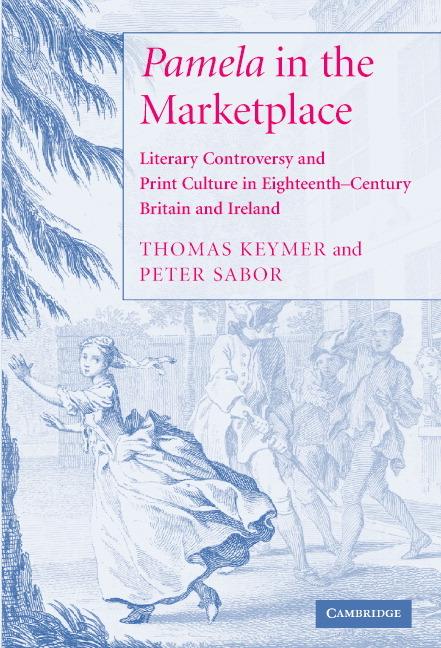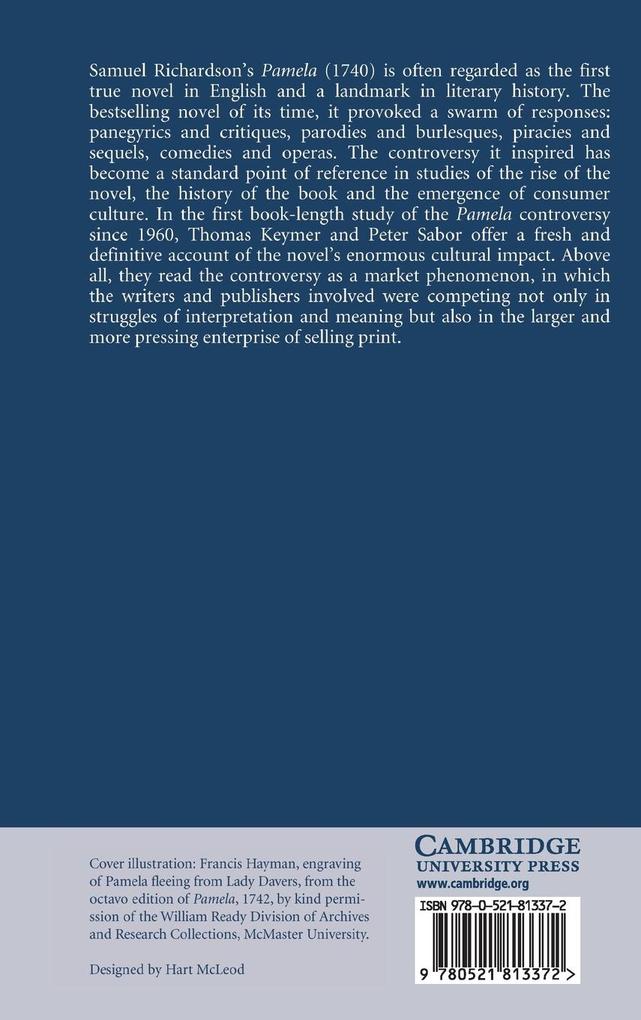
Zustellung: Mi, 16.07. - Sa, 19.07.
Versand in 7 Tagen
VersandkostenfreiBestellen & in Filiale abholen:
Samuel Richardson's Pamela (1740) is often regarded as the first true novel in English and a landmark in literary history. The controversy it inspired has become a standard point of reference in studies of the rise of the novel, the history of the book and the emergence of consumer culture. Thomas Keymer and Peter Sabor offer a fresh and definitive account of the novel's enormous cultural impact, examining the controversy as a market phenomenon, which combined disagreements about literary interpretation with commercial pressures, successes and failures.
Inhaltsverzeichnis
Introduction; 1. 'The selling part': publication, promotion, profits; 2. Literary property and the trade in continuations; 3. Counter-fictions and novel production; 4. Domestic servitude and the licensed stage; 5. Pamela illustrations and the visual culture of the novel; 6. Commercial morality, colonial nationalism, and Pamela's Irish reception; Afterword; Appendix. A chronology of publications, performances and related events to 1750; Select bibliography; Index.
Produktdetails
Erscheinungsdatum
23. November 2015
Sprache
englisch
Seitenanzahl
306
Autor/Autorin
Thomas Keymer, Peter Sabor
Verlag/Hersteller
Produktart
gebunden
Gewicht
650 g
Größe (L/B/H)
235/157/23 mm
ISBN
9780521813372
Entdecken Sie mehr
Pressestimmen
'This excellent book derives from Thomas Keymer and Peter Sabor's previous joint work - The 'Pamela' Controversy ... Providing a wealth of new information in a crisp, witty narrative, it goes far beyond the previous commentaries on the subject of Pamela as a phenomenon of the commercial marketplace. ...this book's dazzling command of historical evidence renders in depth the whole complex dynamics of eighteenth-century cultural production' Modern Language Review ' ... a lively and informative analysis ... admirable and enjoyable ...' Notes and Queries
Bewertungen
0 Bewertungen
Es wurden noch keine Bewertungen abgegeben. Schreiben Sie die erste Bewertung zu "'Pamela' in the Marketplace" und helfen Sie damit anderen bei der Kaufentscheidung.










